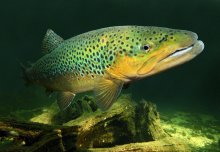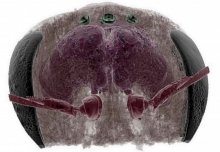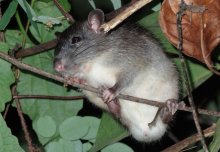

Off the hook
Top predator trout may be able to adapt to warmer waters
Brown trout, the top predator in many European streams, may be able to survive in warmer waters under global warming.



Top predator trout may be able to adapt to warmer waters
Brown trout, the top predator in many European streams, may be able to survive in warmer waters under global warming.


New imaging technique could detect fatty deposits that cause heart attacks
Scientists have found a new way to detect and visualise fatty plaques in arteries that can rupture and cause a heart attack or stroke.


Bee brains as you have never seen them before
Detailed images of bumblebee brains reveal an accurate picture of brain structures associated with learning and memory.
 1
1


Embryo picture claims top spot in scientific images competition
An image of an alligator embryo has won the Art of Research scientific images competition at Imperial.


Antimicrobial resistance on the rise in the European Union, EFSA and ECDC warn
Europe-wide report by EFSA and the European Centre for Disease Prevention and Control (ECDC) underline the seriousness of antimicrobial resistance


Logging helps black rats invade rainforests
Logging can encourage black rats to invade tropical rainforests by creating habitats they prefer, giving them the chance to displace native mammals.


Don't blame grey squirrels: their British invasion had much more to do with us
DNA profiling reveals grey squirrels are not as good invaders as we think, and that humans played a much larger role in spreading them through the UK.
 21
21


Bacteria could be stopped from hiding in 'standby mode'
Researchers are unraveling the mystery of how bacteria switch into 'standby mode' in the human body, enabling the bugs to evade antibiotics.
 1
1


Muscle damage and heart problems linked by Popeye gene
Scientists have discovered a gene mutation that may trigger muscle and heart disorders.


Cholesterol-lowering statins could help tackle breast cancer
A new study by researchers from Imperial College London suggests statins could help fight hard-to-treat cancers.
 3
3